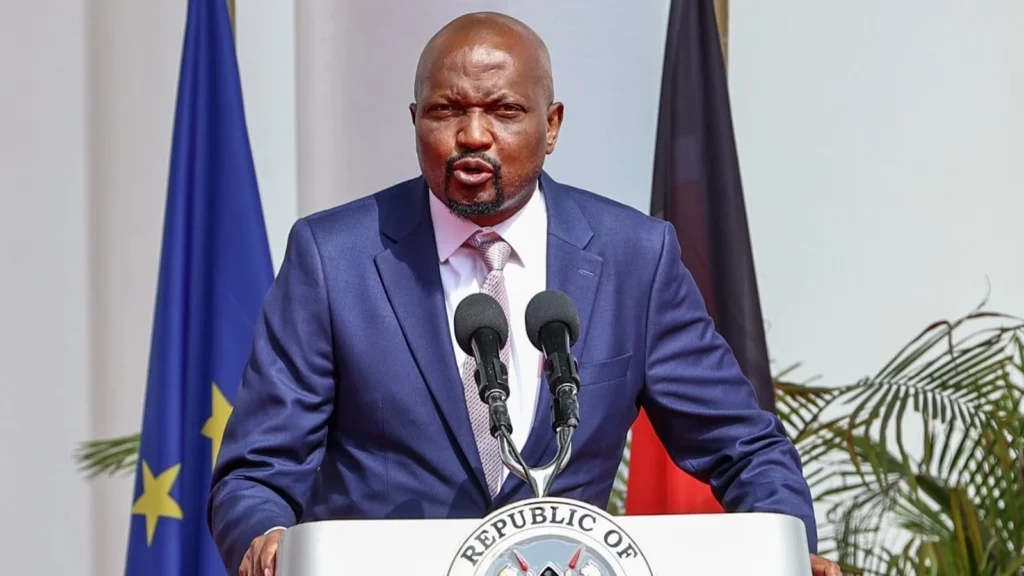Former Public Service Cabinet Secretary Moses Kuria has strongly criticized Health Cabinet Secretary Aden Duale over remarks he made in Garissa on Saturday targeting the Mt Kenya community.
In a statement on Sunday, Kuria accused Duale and several leaders from the Rift Valley of perpetuating what he termed as a “dangerous narrative” that unfairly portrays the Mt Kenya region as considering itself superior to other communities.
“In the recent past, I have listened to a number of leaders allege that there is a community that thinks it’s more superior than others. From [Tiaty MP William] Kamket to [Uasin Gishu Senator Jackson] Mandago to Aden Duale in Balambala today. Some of us have unapologetically said NO to returning this country to the politics of negative ethnicity,” Kuria said.
The former CS warned against the wholesale condemnation of an entire community, insisting that individuals should be judged on their own actions rather than their ethnic background. He urged national leaders to exercise caution in their public statements to avoid inflaming divisions.
“If you have a problem with any individual from the Mt Kenya community, do not take it out against an entire people. If Mt Kenya people have eaten your goat, Kamket, Mandago or Duale, do let me know, I will pay you back,” Kuria quipped, in a sharp retort to his colleagues.
Kuria further cautioned that such rhetoric risked pushing the country “to the edge,” warning that continued ethnic stereotyping could lead to unintended consequences for national cohesion.
Duale, while addressing residents of Balambala in Garissa on Saturday, had said the days of one community feeling entitled or more important than others were over. His remarks were widely interpreted as a veiled attack on former Deputy President Rigathi Gachagua and the political discourse surrounding Mt Kenya’s place in government.
“The days of entitlement that one community is more important than any other community are gone after the new constitution and the advent of devolution,” Duale said.
The exchange highlights growing tensions within President William Ruto’s administration as leaders from different regions trade barbs over community representation and political influence.

